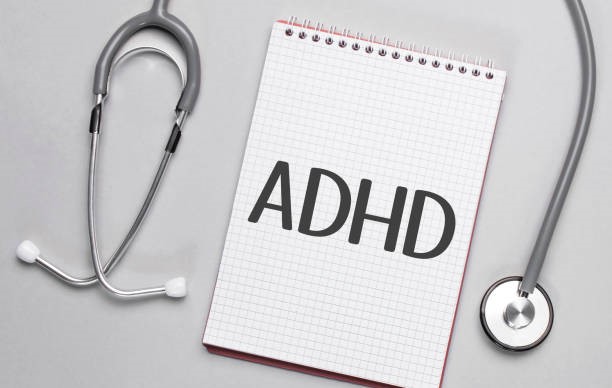Attention Deficit Hyperactivity Disorder (ADHD) and ODD are common neurodevelopmental disorders affecting adults, girls, and others. ADHD and anxiety are characterized by inattention, hyperactivity, and impulsivity. While there is no cure for ADHD, there are effective treatment options that can help manage symptoms and improve the quality of life for individuals with ADHD. This article will discuss some of the most effective treatment options for ADHD like natural supplements for ADHD.
Medication
One of the most effective ways to manage ADHD and emotional dysregulation is through medication. Medications used to treat ADHD are designed to address the chemical imbalances in the brain that contribute to the disorder’s symptoms. These medications are known as stimulants and work by increasing neurotransmitters such as dopamine and norepinephrine levels in the brain. These neurotransmitters are responsible for improving emotional regulation, attention, and behavior.
● Research Study
Medication use in treating ADHD has been extensively studied, and research has consistently shown that medication is effective in reducing the symptoms of ADHD. Medication is the most effective way for many people to manage their symptoms and improve their quality of life.
● Help to Focus
One of the most significant benefits of medication is that it can help people with ADHD focus and concentrate better. Stimulants work by increasing the levels of dopamine and norepinephrine in the brain, which can improve attention and concentration. It can make it easier for people with ADHD to complete tasks, stay organized, and be more productive. With it, you can try supplements for ADHD for adults and children to get positive results.
Behavioral Therapy
Behavioral therapy is another effective treatment option for ADHD. Behavioral therapy teaches individuals with ADHD to manage their symptoms and develop coping strategies. This type of therapy may involve setting goals, breaking tasks into smaller steps, and developing routines to help with organization and time management.
● Cognitive-behavioral Therapy
Cognitive-behavioral therapy (CBT) is a specific behavioral therapy that can be particularly helpful for individuals with ADHD. CBT helps individuals identify negative thoughts and behaviors and replace them with more positive ones. CBT can help improve self-esteem, reduce anxiety and depression, and improve social skills.
Lifestyle Changes
The importance of lifestyle changes in ADHD cannot be overstated. Here are some of the ways that changing one’s lifestyle can help manage ADHD:
● Improving sleep habits
Individuals with ADHD often struggle with sleep difficulties, which can exacerbate their symptoms. Poor sleep can lead to increased impulsivity, inattention, and hyperactivity. Making lifestyle changes such as setting a regular sleep schedule, avoiding screens before bed, and creating a relaxing bedtime routine can improve sleep quality and quantity, thereby reducing ADHD symptoms.
● Incorporating regular exercise
Exercise has been shown to be an effective way to manage ADHD and ODD symptoms. Physical activity helps increase dopamine and norepinephrine levels, which are neurotransmitters essential for attention and focus. Exercise also helps to reduce anxiety and depression, which can often co-occur with ADHD. Incorporating regular exercise, whether through organized sports or simply going for a walk, can positively impact ADHD symptoms.
● Following a healthy diet
While there is no specific “ADHD diet,” research has shown that following a healthy diet can help manage symptoms. Eating a balanced diet that includes whole grains, lean proteins, and fruits and vegetables can provide the nutrients necessary for optimal brain function. Limiting processed foods, sugary snacks, and caffeine is also necessary, which can exacerbate ADHD symptoms.
● Reducing stress
Stress can have a significant impact on ADHD symptoms, as it can lead to increased impulsivity and distractibility. Finding ways to reduce stress, such as through meditation, yoga, or deep breathing exercises, can help manage ADHD symptoms. It’s also important to prioritize self-care activities, such as taking breaks when needed and engaging in enjoyable activities.
Mindfulness
Research has shown that mindfulness can be an effective tool for managing ADHD and ODD symptoms. A study by researchers at the University of California, Los Angeles, found that mindfulness-based interventions can significantly reduce ADHD symptoms in adults. Participants who completed an eight-week mindfulness program reported improvements in attention, hyperactivity, and impulsivity and reductions in anxiety and depression.
● Cognitive control
Another study published in the Journal of Attention Disorders found that mindfulness training can improve cognitive control in children with ADHD. The study involved children between the ages of 8 and 12 who participated in a mindfulness-based intervention for eight weeks. The results showed that the children who received mindfulness training had significant improvements in cognitive control, as well as reductions in ADHD symptoms. Therefore, you can get services from adhdsnap.com to buy the best supplements for ADHD at a low price.
● Managing ADHD symptoms
One reason mindfulness may be effective with natural ADHD supplements in managing ADHD symptoms is that it helps individuals develop greater self-awareness. People with ADHD often struggle with self-regulation and struggle to recognize their emotions and behaviors. By practicing mindfulness, individuals can become more attuned to their thoughts, feelings, and physical sensations, which can help them identify triggers for impulsive or distracted behavior.
Conclusion
In conclusion, ADHD can be a challenging disorder to manage, but effective treatment options are available. Medication, behavioral therapy, lifestyle changes, and mindfulness can all help improve symptoms and the quality of life for individuals with ADHD. Working closely with a healthcare provider to find the best treatment plan for each individual is essential.


